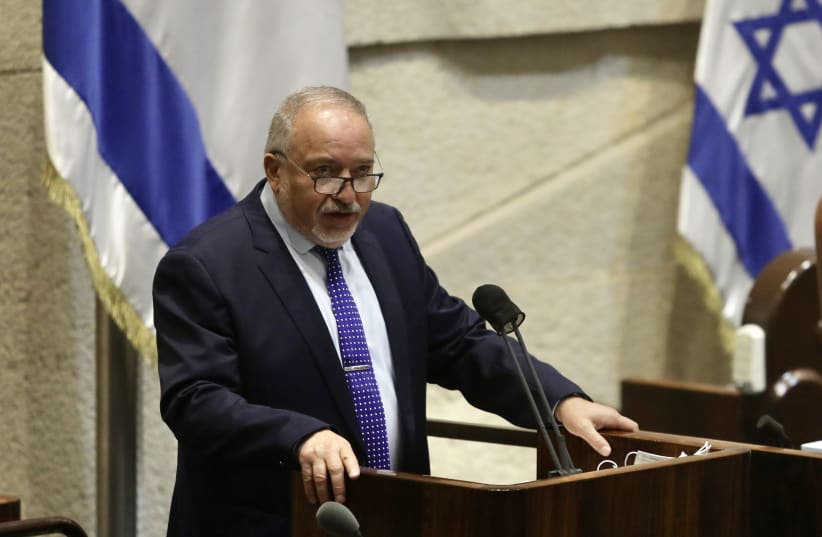Finance Minister Avigdor Liberman presented the national budget for 2021-2022 in the Knesset Finance Committee session on Monday.
He was joined by Minister in the Finance Ministry Hamed Amar, Finance Ministry general director Ram Belinkov and interim head of the Budget Department Yogev Gardos.
"It is important before presenting the budget to note that the Israeli economy is working and growing," Liberman said at the beginning of the meeting. "In tax collection, we are exceeding expectations, [and] in terms of the volume of credit card activity we are breaking all the records.
He commended Israeli companies for their success on the stock market and even claimed that the state of Israeli export was too good since the shekel has become so strong that it has harmed industrial export.
Liberman then went on to extoll the budget as the most socialized ever and as including an unprecedented amount of engines of growth.
The budget grants an extra NIS 700 million to the Ministry of Labor, Social Affairs and Social Services, NIS 150 million towards reducing domestic violence, NIS 1 billion to the Ministry of Education, NIS 1 billion to the Public Security Ministry, 1,100 new policemen, NIS 300 million for a yearly stipend for holocaust survivors, NIS 800 million to the handicapped, NIS 1 billion to handicapped IDF veterans and NIS 5 billion towards fortifying the northern border.
Liberman also praised the government's COVID policy's positive impact on the economy, as the economy was left open and there were no lockdowns.
"I propose to examine the subject of the lockdowns," he said. "I am closely following the two countries that are enforcing the longest and harshest lockdowns, New Zealand and Australia. In recent days New Zealand has experienced another outbreak."
"It must be understood that the solution to COVID is twofold: vaccines and personal hygiene. The whole subject of lockdowns does not work, and they severely cripple the economy," he said.
He concluded by listing a number of growth engines, such as the Metro project in Gush Dan, heavy investment in artificial intelligence, and laying a comprehensive fiber-optic groundwork in order to enable millions of Israelis to enjoy 5th generation internet.
Budget Department head Yoram Garbo also praised the government's policies.
"The way in which the government dealt with COVID and allowed the economy to function, [and] from an economic standpoint caused the budget's not only not to worsen, but even to improve," he said. "At least in this aspect, the policy of leaving the economy open was a significant contribution, and enabled what we are going to do in the next two years," he added.
"In 2020 there was a decrease in [government] income from taxes, but in 2021 we already have a significant increase in tax income, [and] the economy emerged strongly from the crisis. We see this in the data on growth, we are expecting over 6% growth this year," he said. Opposition MKs were critical of the proposed budget.
MK Shlomo Karhi (Likud) accused the budget as discriminatory against the weaker parts of society. He claimed that the proposed congestion tax in the Gush Dan area was unfair towards people in the periphery, as it will apply only to people entering the area and not people who live in it and may roam around freely.
Karhi also criticized the government's decision to halt its "readjustment stipend" for people over 67 who were put on leave without pay during the COVID crisis. He also criticized the proposal to raise the retirement age for women, claiming that the government was not providing enough of a safety net for women who might be harmed by the move.

